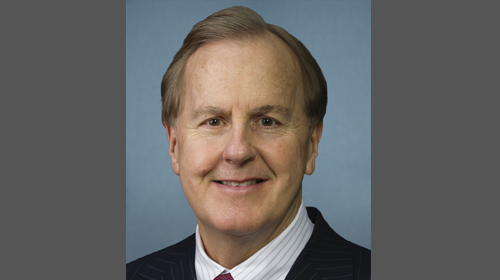
Last week, the Wall Street Journal published an (R-N.C.), criticizing a bipartisan amendment on NSA reform to the House Defense Appropriations bill. The amendment, which Pittenger called "a Congressional mistake," passed the House by an overwhelming majority.
Unfortunately, the op-ed was a mistake, filled with half-truths and inaccuracies which mischaracterized the amendment as an attack on our national security. To rebut Rep. Pittenger's misguided attempt to derail necessary NSA reform, we've fact-checked his op-ed.
By approving the Massie-Lofgren amendmentCongress prohibited U.S. intelligence agencies from reviewing the emails and telephone calls of foreign-based terrorists to determine if they are plotting an attack with someone based inside the U.S
This assertion by Rep. Pittenger is inaccurate. The Massie-Lofgren amendment ÔÇô which was actually also sponsored by Rep. Jim Sensenbrenner (R-Wis.), an original co-sponsor of the Patriot Act ÔÇô places no additional restrictions on the government's ability to collect information from individuals abroad. As I've noted previously, what the amendment does do is partially close the so-called "back door search loophole" ÔÇô where the government can search communications collected under Section 702 of Foreign Intelligence Surveillance Act for the emails and text messages of specific U.S. citizens and residents, without a warrant.
Section 702 was designed to grant the government the authority to conduct warrantless surveillance (which has its own problems) of international communications, including communications involving U.S. persons, so long as the target is a non-U.S. person overseas. But, last week revealed, based on an analysis of 160,000 intercepted communications, 90 percent of account holders in the intercepted communications are not targets, and over half of communications belong to US persons.
In other words, Massie-Lofgren simply says if you want to search through the communications of Americans ÔÇô which you weren't supposed to target anyway ÔÇô and there's no emergency, get permission from the secret intelligence court.
[The amendment] would make intelligence agencies revert to the sort of pre-9/11 policies that barred them from monitoring calls between a 9/11 hijacker in San Diego and an al Qaeda safe house in Yemen.
Not so. Under Section 702, the government would absolutely be able to collect the information referenced above, and the Massie-Lofgren amendment wouldn't do anything to change that. Indeed, even prior to 9/11, the government could have targeted calls from Yemen. And, they could monitor the calls of individuals domestically provided they could demonstrate to the secret intelligence courts that there was probable cause to believe that the individual in the U.S. was associated with a terrorist organization, foreign government, or foreign-based political organization. In other words, nothing in the proposed amendment would impede the ability of the government to gather intelligence in the case that Rep. Pittenger describes.
the amendment provides greater protection to terrorists than to criminals by prohibiting the use of available evidence (i.e., terrorist communications) by intelligence agencies.
This couldn't be further from the truth. Under current law ÔÇô which would remain unchanged by the amendment ÔÇô the government can collect the phone and internet records of millions of Americans with no individual suspicion; collect communications to, from, or about a target abroad; or get a warrant from the secret intelligence court to monitor a suspected terrorist in the United States.
These standards are far lower than the standards under criminal law, where courts have generally held that the government must obtain a probable cause warrant before , monitoring your computer, or obtaining other records.
U.S. intelligence agencies are already under strict oversight by Congress, the president and the judicial system, and are prohibited from targeting the communications of American citizens without first obtaining a court order on a case-by-case basis.
Once again, Pittenger's wrong. If the Snowden revelations have taught us anything, it is that key oversight bodies were caught completely off guard by the breadth of surveillance being conducted by our government. Even (D-Calif.), head of the Senate Intelligence Committee, says she was unaware of some of our foreign surveillance activities. Moreover, just last week, the Privacy and Civil Liberties Oversight Board claimed to be unable to assess the ÔÇô information that was revealed one week later in a Washington Post investigation.
As those disclosures revealed, the government engaged in nationwide collection of phone and internet metadata with no case-by-case consideration. In addition, the content of millions of American communications continue to be collected merely because they may be in contact with a target abroad, a determination that is not subject to individualized court review.
So, while Rep. Pittenger calls the Massie-Lofgren amendment a "mistake," the only mistakes appear to be in his own op-ed.
Learn more about the NSA and other civil liberties issues: Sign up for breaking news alerts, , and .

